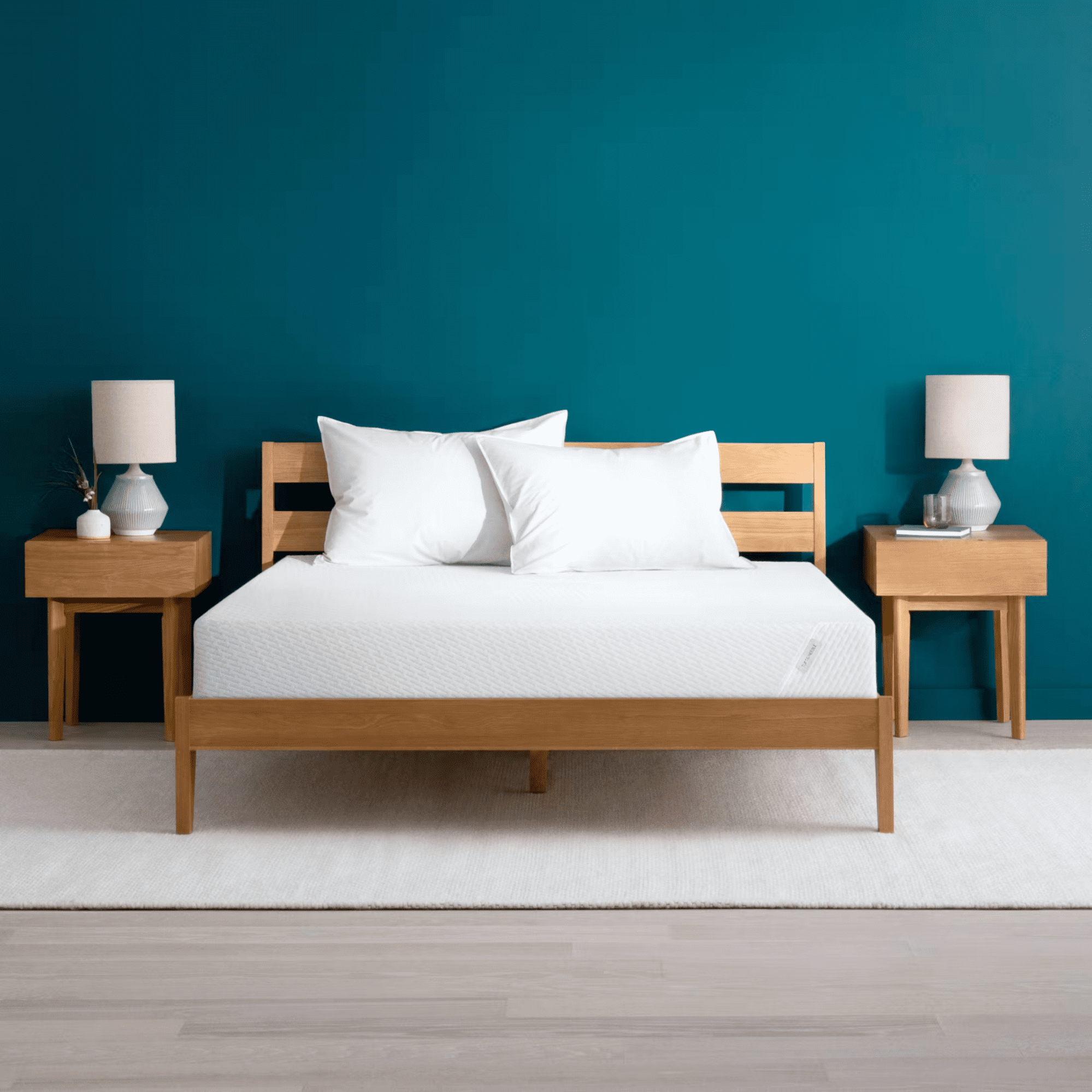While urine can be difficult to clean from a mattress, half the battle is already won if you’re able to clean up immediately after the accident occurs. However, even older stains and odors can be cleaned with the right tools. We’ll walk you through the steps of cleaning urine from a mattress, then provide you with some techniques for ridding your mattress of old stains and odors.
Step by Step: How to Remove Urine From Your Mattress
Cleaning is easiest and most effective before the urine dries, so as soon as you notice a stain, follow these quick and easy steps to clean your mattress.
Gather Cleaning Supplies
The essential supplies for cleaning urine from a mattress include:
- Water
- Baking soda
- White vinegar
- Spray bottle
- Clean towels, rags, or paper towels
- A vacuum
If you regularly deal with nighttime accidents, you may want to consider putting these supplies in an easily accessible container.
Prepare Your Cleaning Solution
A solution of equal parts water and white vinegar will help clean the mattress without causing damage. While the solution can be blotted on with towels, a spray bottle works best.
Strip the Bed
Sheets and mattress toppers need to be stripped from the bed and washed as quickly as possible after an accident to avoid saturating the mattress itself.
Soak Up the Urine
Clean rags or towels are best for soaking up urine, though paper towels also work in a pinch. Scrubbing can cause the urine to soak in more deeply, so make sure not to use too much pressure when blotting the mattress.
Apply the Solution
Your solution of vinegar and water will help clean your mattress by breaking down the uric acid in the urine. Spray or dab the solution onto the mattress, making sure not to use so much that you soak the bed. If you choose to use a commercial product instead, look for one designed for protein stains and follow the product’s directions.
Blot Any Excess
Using clean towels, firmly blot away any excess cleaning solution. Make sure you’ve already removed all the moisture you can before moving on to the next step.
Use Baking Soda
Baking soda is alkaline, which allows it to neutralize uric acid and prevent any lingering odors. It is also good at drawing out moisture from a mattress, making it a powerful part of the cleaning process. To use it, spread a generous layer over the surface of your mattress and let it sit for at least 8 hours.
Vacuum and Inspect
Vacuuming is the easiest way to clean the baking soda off your bed. If you notice any lingering stains or odors, a second round of the vinegar cleaning solution, followed by baking soda, should do the trick.
Shop the Best Mattresses of 2024How to Remove Older Stains and Odors From Your Mattress
Even if your mattress has older odors and stains, the following method of deep cleaning may keep you from having to replace it. These steps are similar to the previous ones, but the cleaning solutions are stronger, making it useful for more persistent urine stains.
Although you can use a commercial cleaning solution for protein-based stains, it’s also possible to make your own. For older stains and odors, an effective solution includes:
- 8 ounces of hydrogen peroxide
- 3 tablespoons of baking soda
- A few drops of dish soap or laundry detergent
Hydrogen peroxide kills odor-causing bacteria and breaks down the proteins in urine stains, but it can also bleach some fabrics and damage foam. It’s best to first test a small amount in an inconspicuous area. Only prepare as much cleaning solution as needed, and never store the mixture in a closed container.
Since the baking soda in the solution will dry and draw moisture up from the bed, there’s no need for a separate layer of baking soda. Just spray your cleaning solution on the mattress, leave it for 8 hours, and then vacuum off the baking soda residue.
If one round of this process isn’t enough to make your stains disappear, you can repeat it as necessary. If the stains are gone but an odor remains, cleaning again with vinegar and baking soda may be all that is needed.
Ask the Sleep Doctor
Have questions about sleep? Submit them here! We use your questions to help us decide topics for articles, videos, and newsletters. We try to answer as many questions as possible. You can also send us an email. Please note, we cannot provide specific medical advice, and always recommend you contact your doctor for any medical matters.




